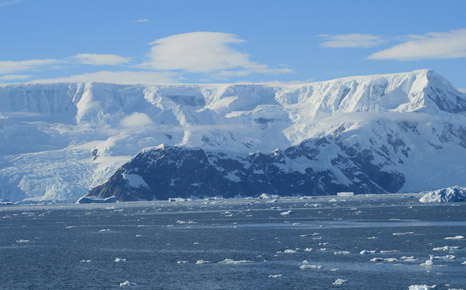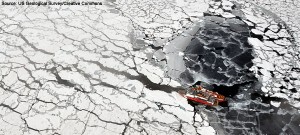Polar
Scientists uncertain over rate of polar ice loss
Glaciologists cannot say for certain whether the Earth’s north and south polar ice is melting faster as the years pass
Summer melt increasing on the Antarctic Peninsula
Region warming faster than the rest of the continent as meltwater speeds glacier advance and encourage iceberg break up
Is the Arctic’s loss Antarctica’s gain?
While Arctic sea ice cover plummeted this summer, many suggest this was balanced by gains in ice cover at the Antarctic. So who’s right?
Arctic ice loss equivalent to 20 years of man-made CO2, says polar scientist
Cambridge University’s Professor Peter Wadhams says polar melt threatens to double mankind’s contribution to global warming, potentially causing irreversible climate change
Arctic sea ice reaches record low, says NASA
Arctic sea ice is lower than at any other point since satellite records began, according to NASA, representing a new norm for the region.
Rapid warming in the Antarctic could destabilise thousand year old ice shelves, say scientists
Scientists find rapid warming over last 50-100 years contributed to the collapse of ice shelves witnessed over last 20 years, warning of more occurrences with future warming.
Arctic sea ice could shrink to record lows, says polar scientist
Ted Scambos from the US National Snow and Ice Data Centre warns that Arctic sea ice could shrink to record lows next week, and then continue to melt for the rest of the summer months.
Melting over Greenland ice sheet shatters record, say scientists
Latest data shows melting over the Greenland ice sheet in 2012, has surpassed previous seasonal records – four weeks before the melting season is expected to end.
Arctic could be ice-free in summer by end of the decade, according to European Space Agency
Images from polar satellite suggest sea ice in the Arctic could be disappearing at a rate 50% higher than previously predicted.
Greenland ice loss comes in fits and starts say scientists
New research finds Greenland’s ice sheet melt could happen in short bursts, showing that the melt witnessed between 2005 and 2010 may not have been unprecedented.
RTCC Q&A: Why Shell’s Arctic adventure could have implications for us all
With Shell’s drilling rigs weeks away from entering the Arctic, RTCC takes a look at some of the potential implications of drilling in the region.
“Significant Challenges” for life in the Arctic Ocean, says report
Unique all-season report finds risk to biodiversity in the Arctic Ocean and points towards “significant challenges” faced by the region’s nature. Meanwhile another study finds some species could still thrive in the Arctic.

